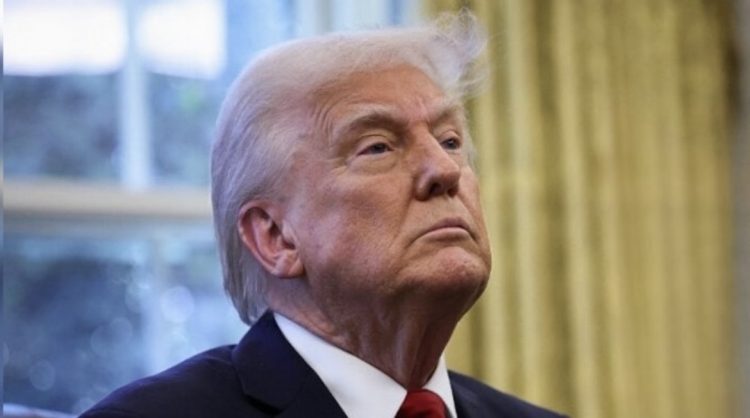President Trump just signed a new proclamation that blocks people from 12 countries from entering the U.S. He says it’s about stopping “foreign terrorists” and keeping the country safe.
This ban kicks in early morning on June 9, 2025. Anyone who already has a visa before that date gets to keep it.
Trump explains why the ban is needed
“We will not allow people to enter our country who wish to do us harm,” Trump said in a video on X.
He mentioned that the list of banned countries might change in the future. More might get added.
“We cannot have open migration from any country where we cannot safely and reliably vet and screen those who seek to enter the United States,” he added.
These 12 countries face a full travel ban
Twelve countries are fully blocked from sending people into the U.S. They are: Afghanistan, Myanmar, Chad, Congo, Equatorial Guinea, Eritrea, Haiti, Iran, Libya, Somalia, Sudan, and Yemen.
That means no entry at all, unless something changes later.
Seven other countries face partial restrictions
Seven other countries are still allowed limited travel. But there are restrictions in place for people coming from: Burundi, Cuba, Laos, Sierra Leone, Togo, Turkmenistan, and Venezuela.
Trump cites terrorism and poor cooperation as key reasons
Trump said the strictest bans went to countries with a “large-scale presence of terrorists.” But that’s not all.
He also pointed out problems like poor ID systems, messy criminal records, and places where people often overstay their visas in the U.S.
And he said some of these countries don’t help enough with security or visa checks.
A recent attack in Colorado is used as justification
Trump brought up something that just happened in Boulder, Colorado. A man threw a gas bomb into a group of pro-Israel protestors.
This isn’t the first time Trump has done this
Back in his first term, Trump also put out a travel ban. That one focused on mostly Muslim countries.
It went through a few changes, but the Supreme Court ended up upholding it in 2018.
Biden had reversed the earlier travel bans
When Biden became president, he scrapped Trump’s earlier ban in 2021.
He called it “a stain on our national conscience.”
Some countries respond to the new restrictions
Somalia didn’t waste any time. They said they’re open to working with the U.S. to sort things out.
“Somalia values its longstanding relationship with the United States and stands ready to engage in dialogue to address the concerns raised,” said Dahir Hassan Abdi, their ambassador in Washington.
Meanwhile, Venezuela’s interior minister wasn’t having it. He slammed the U.S. as fascist and had a warning for Venezuelans.
“The truth is being in the United States is a big risk for anybody, not just for Venezuelans … They persecute our countrymen, our people for no reason.”
Myanmar’s military didn’t respond to questions. Neither did the foreign ministry of Laos.
The policy follows a broader immigration crackdown
Trump has been promising tighter immigration rules since his second term started. In a 2023 speech, he said he wanted to limit travel from places like Gaza, Libya, Syria, Somalia, and Yemen.
On his first day back in office, he signed an executive order asking for stricter vetting of people trying to enter the U.S.
That order told cabinet members to come up with a list of countries where screening systems are weak or just not good enough.
By March, Reuters reported that the administration was thinking about even more travel limits, maybe involving dozens of countries.

















































